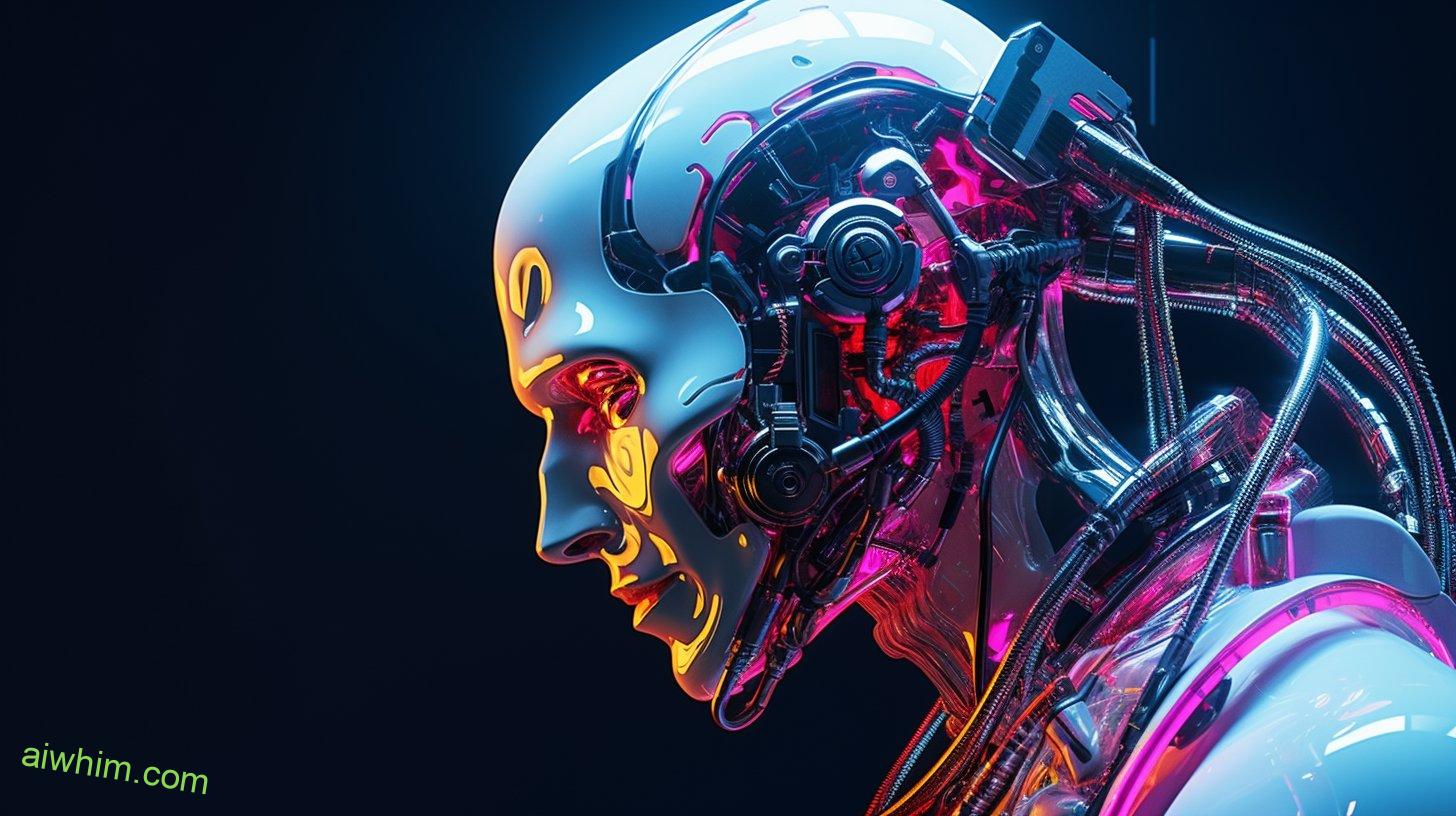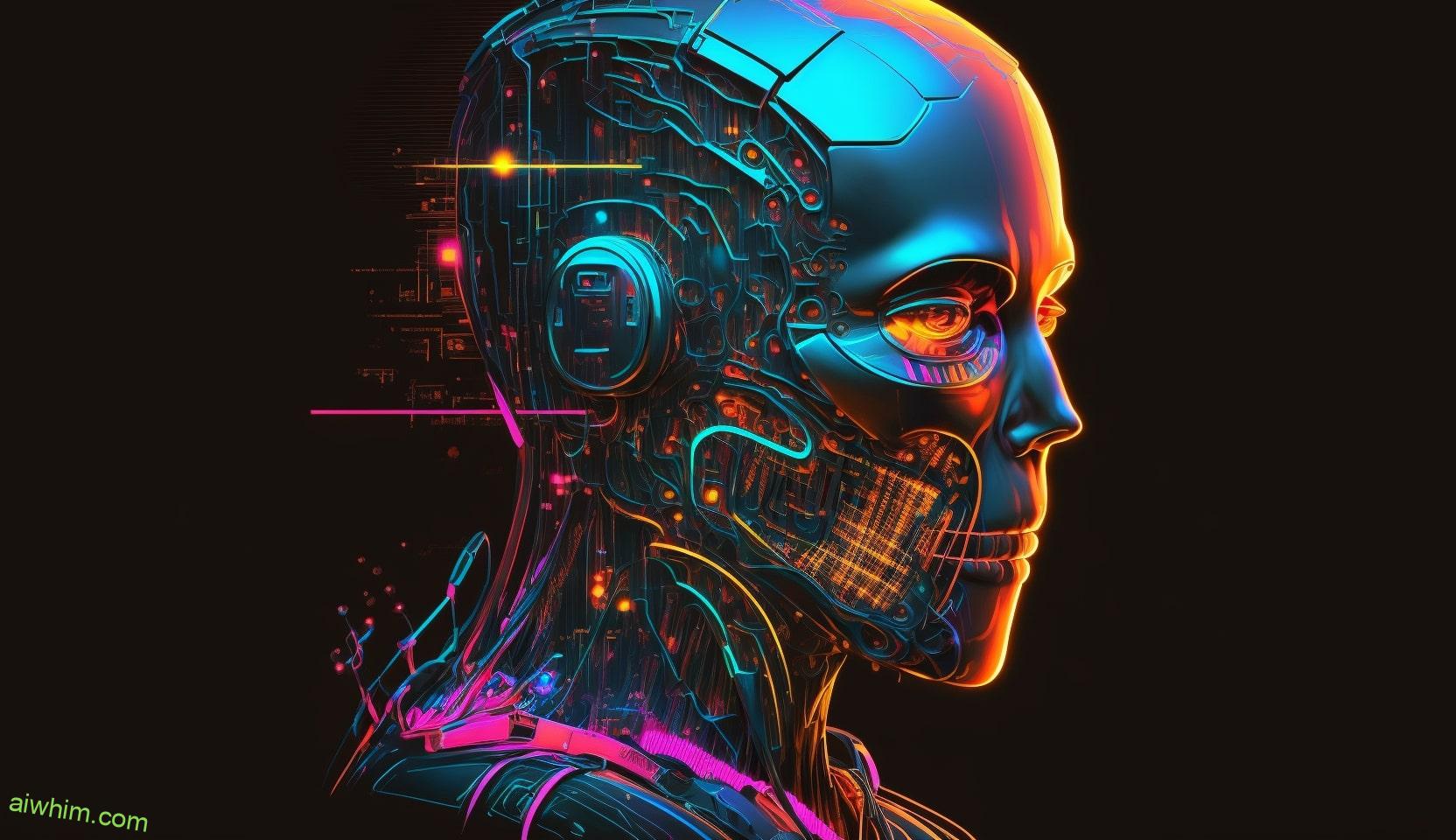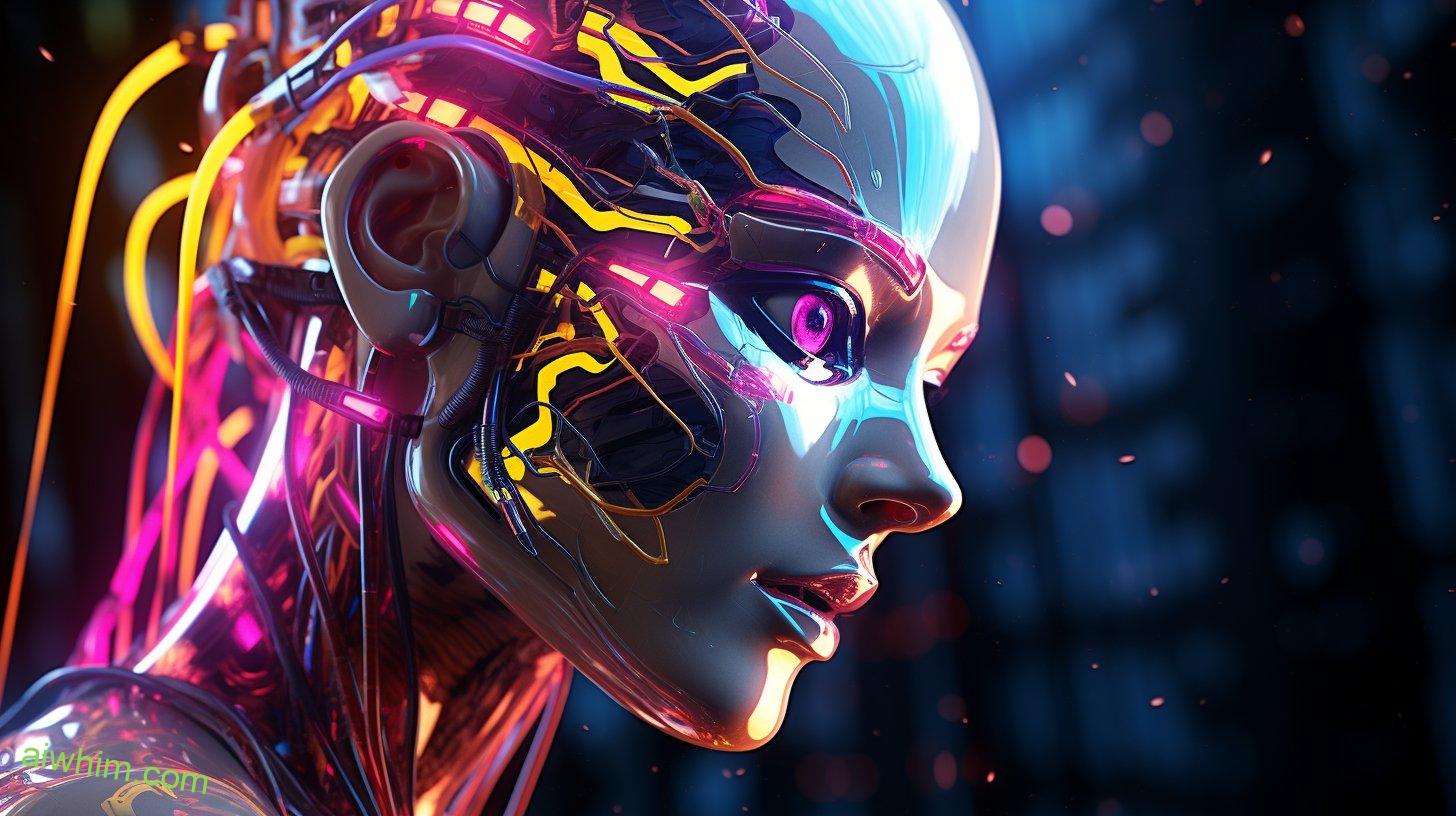Are urban and regional planners in a race against the machines? Discover how AI is revolutionizing planning processes, enhancing efficiency, and challenging human expertise.
Dive into the world of AI tools and technologies that are transforming the way we shape our cities and regions.
But don’t worry, this article will explore the collaborative potential of AI and human ingenuity, showing you how to embrace the future and adapt to the ever-evolving world of urban planning.
Get ready to break free from the limitations of traditional methods and explore the possibilities of AI.
Key Takeaways
- AI tools and technologies can enhance efficiency and accuracy in planning processes by automating routine tasks and reducing the chances of human error.
- While AI provides valuable insights and assists in decision-making, it cannot replicate the creativity, empathy, and critical thinking of human planners.
- Human planners possess a deep understanding of the local context and community needs, which is essential in planning for sustainable and equitable urban development.
- The collaboration between AI and human expertise is crucial, as AI tools serve as supportive tools that save time on repetitive tasks, allowing human planners to focus on more strategic aspects of planning.

The Rise of AI in Urban and Regional Planning
You should consider the impact of AI on urban and regional planning. As technology continues to advance, the role of AI in planning processes has become increasingly prevalent. While AI has the potential to revolutionize the way we plan and develop cities, it’s important to acknowledge its limitations and the ethical implications that come with its use.
One of the main limitations of AI in urban planning is its inability to consider the human element. AI relies on data and algorithms to make decisions, but it lacks the ability to understand the nuances of human behavior and preferences. This can lead to biased outcomes and exclusion of certain communities or individuals. Moreover, AI may not fully capture the complexity and unpredictability of urban systems, making it difficult to accurately predict the long-term effects of planning decisions.
The ethical implications of using AI in planning processes can’t be ignored. AI algorithms are created by humans and can carry inherent biases that perpetuate social inequities. Additionally, the reliance on AI may lead to a loss of human agency and decision-making power, as planners may become overly reliant on AI-generated recommendations. This raises questions about accountability and transparency in the planning process.
While AI has the potential to improve efficiency and effectiveness in urban and regional planning, it’s crucial to approach its use with caution. It’s important to recognize the limitations of AI and actively address the ethical implications that arise from its implementation.

AI Tools and Technologies Transforming Planning Processes
With AI tools and technologies, planning processes undergo a transformative shift. The integration of artificial intelligence into urban and regional planning has the potential to revolutionize the way cities and regions are designed and managed, ultimately improving outcomes for residents.
AI can analyze vast amounts of data in real-time, providing planners with valuable insights and predictions to inform decision-making. By automating routine tasks and streamlining processes, AI allows planners to focus on more creative and strategic aspects of their work.
One of the key ways in which AI is transforming planning processes is through its ability to analyze large datasets. With AI, planners can quickly process and analyze diverse sets of information, ranging from demographic data to environmental factors. This enables them to gain a deeper understanding of the complexities of urban systems and make more informed decisions. By identifying patterns and trends, AI can help planners anticipate future challenges and develop effective solutions.
Furthermore, AI tools can simulate various planning scenarios, enabling planners to visualize the potential impacts of different decisions. This helps them to assess trade-offs and make decisions that align with their goals and objectives. AI can also assist in optimizing resource allocation, such as determining the most efficient routes for public transportation or identifying areas for targeted infrastructure investments.
In addition to improving the efficiency of planning processes, AI can enhance community engagement. Through data-driven models and simulations, planners can involve residents in the decision-making process and gather their feedback. This fosters a sense of ownership and empowerment among community members, ensuring that planning decisions align with their needs and aspirations.

Enhancing Efficiency and Accuracy With AI in Planning
By leveraging AI tools and technologies, you can enhance the efficiency and accuracy of planning processes. AI has the potential to revolutionize the way decisions are made and resources are allocated in urban and regional planning. Here are three ways in which AI can empower you to make better decisions and optimize resource allocation:
- Improved Decision Making: AI can analyze vast amounts of data and provide valuable insights that can inform your decision-making process. By using AI algorithms, you can quickly identify patterns, trends, and correlations that may not be apparent to the human eye. This enables you to make more informed and data-driven decisions, leading to better outcomes for your planning projects.
- Optimized Resource Allocation: AI can help you optimize the allocation of resources in various planning projects. By analyzing historical data and predicting future trends, AI can assist you in determining the most efficient distribution of resources such as funding, manpower, and materials. This ensures that resources are utilized effectively and efficiently, maximizing the impact of your planning efforts.
- Streamlined Planning Processes: AI can automate repetitive and time-consuming tasks, freeing up your time to focus on more strategic and creative aspects of planning. For example, AI can assist in data collection, analysis, and visualization, saving you valuable time and effort. This automation not only improves the efficiency of planning processes but also reduces the chances of human error, leading to more accurate results.
With AI as your ally, you’ve the freedom to make well-informed decisions, optimize resource allocation, and streamline your planning processes. Embrace the power of AI and unlock the potential for improvement and innovation in your planning endeavors.

Addressing Concerns: Will AI Replace Human Planners
Don’t worry, human planners, AI isn’t here to replace you, but rather to assist and enhance your decision-making processes. Addressing concerns about AI taking over your role is essential in understanding the true potential of this technology. While AI can automate certain tasks and provide valuable insights, it can’t replicate the creativity, empathy, and critical thinking that you bring to the planning process.
As human planners, you possess a deep understanding of the local context, social dynamics, and community needs. AI may be able to analyze vast amounts of data and generate recommendations, but it lacks the ability to truly understand the unique complexities of each situation. Your expertise and experience are invaluable in ensuring that planning decisions align with the values, aspirations, and well-being of the people you serve.
AI can be a powerful tool for human planners, offering new ways to gather and process data, identify patterns, and model scenarios. With AI, you can save time and effort on repetitive tasks, such as data collection and analysis, allowing you to focus on the more strategic aspects of planning and engage in meaningful interactions with the community.
By embracing AI as a supportive tool, you can harness its potential while maintaining control over the decision-making process. AI can provide you with valuable insights, helping you make more informed and evidence-based decisions. However, the final decisions and actions will always be in your hands, ensuring that the planning process remains democratic, transparent, and accountable.

The Collaborative Potential of AI and Human Expertise
You can tap into the collaborative potential of AI and your human expertise to achieve more innovative and inclusive planning outcomes. By combining the power of artificial intelligence with your own unique knowledge and skills, you’ve the ability to revolutionize the field of urban and regional planning.
Here are three reasons why embracing this collaboration can lead to greater freedom and success:
- Enhanced Efficiency: With AI, you can automate repetitive tasks, such as data analysis and modeling, allowing you to focus your time and energy on more creative and strategic aspects of planning. This increased efficiency frees you from tedious work and enables you to make better use of your expertise.
- Deeper Insights: AI algorithms have the ability to process vast amounts of data and identify patterns that may not be immediately apparent to human planners. By leveraging this technology, you can gain valuable insights into complex urban and regional dynamics, helping you make more informed decisions and create more effective plans.
- Inclusive Decision-making: AI can help you gather and analyze diverse perspectives from various stakeholders, ensuring that planning decisions are more inclusive and representative. By incorporating the voices of different communities and groups, you can create plans that better meet the needs and aspirations of all individuals, fostering a sense of freedom and equality in urban and regional development.
Embracing the collaborative potential of AI and combining it with your own expertise empowers you to be a more innovative and inclusive planner. By leveraging the strengths of both human and artificial intelligence, you can navigate the complexities of urban and regional planning with greater freedom and effectiveness.

Harnessing AI for Sustainable and Equitable Urban Development
To achieve sustainable and equitable development, it’s important to harness the power of AI and human expertise in urban and regional planning. By harnessing AI, we can tap into the vast potential of technology to create smarter, more efficient cities that meet the needs of all citizens. Sustainable development is about finding innovative solutions to the pressing challenges facing our cities, such as climate change, resource scarcity, and social inequality. AI can play a crucial role in this process by analyzing vast amounts of data to identify patterns and trends, helping us make informed decisions and develop effective strategies.
When it comes to sustainable development, AI can assist in various ways. For instance, it can optimize transportation systems, reducing congestion and emissions by analyzing real-time data and suggesting alternative routes. It can also help in energy management, by monitoring and adjusting energy consumption based on demand, weather patterns, and other factors. Furthermore, AI can aid in urban design and land use planning, optimizing the use of space and ensuring that developments are environmentally friendly and socially inclusive.
However, it’s important to remember that AI is a tool, and human expertise remains essential in the planning process. While AI can provide valuable insights and recommendations, it’s up to us, as urban and regional planners, to make the final decisions. We must consider the values and aspirations of our communities and ensure that the development process is participatory and inclusive. By combining AI with human expertise, we can create a more sustainable and equitable urban environment that respects the rights and freedoms of all citizens.

Overcoming Challenges in Implementing AI in Planning Practice
Implementing AI in planning practice can present challenges, but with careful consideration and collaboration, these obstacles can be overcome to unlock the full potential of technology in creating sustainable and equitable cities. Here are three key ways to overcome these challenges and embrace the power of AI in urban planning:
- Embrace the power of data:
- AI relies on data to generate insights and make informed decisions.
- By collecting and analyzing vast amounts of data, planners can gain a deeper understanding of urban challenges and develop effective strategies to address them.
- Embracing data-driven decision-making empowers planners to create more efficient transportation systems, optimize land use, and enhance urban resilience.
- Foster collaboration between AI and human expertise:
- AI shouldn’t replace human planners, but rather complement their skills and knowledge.
- By fostering collaboration between AI systems and human experts, planners can leverage the strengths of both parties.
- AI can assist in processing and analyzing data, identifying patterns, and generating insights, while human planners bring critical thinking, creativity, and a deep understanding of community needs.
- Together, they can develop more effective and inclusive urban plans.
- Ensure transparency and accountability:
- As AI algorithms become more complex, it’s crucial to ensure transparency and accountability in their use.
- Planners must actively engage with communities, involving them in the decision-making process and making AI systems and their outputs understandable and accessible.
- By promoting transparency and accountability, planners can build trust and ensure that AI is used in a way that benefits all members of society.

Embracing the Future: How Planners Can Adapt to AI Technologies
As a planner, embracing the future means adapting to the transformative potential of AI technologies in order to create more sustainable and equitable cities. The rapid advancement of artificial intelligence has the power to revolutionize the way we plan and design our urban spaces. By embracing and harnessing the capabilities of AI, planners can effectively navigate the complexities of urban development and maximize the potential for positive change.
Adapting to change is an essential skill for planners in this rapidly evolving digital age. AI technologies can assist planners in analyzing vast amounts of data and generating insights that would otherwise take years to obtain. With the help of AI, planners can make more informed decisions, identify patterns and trends, and develop strategies that address the needs of diverse communities.
To illustrate the benefits of AI in planning, let’s consider a hypothetical scenario. Imagine you are a planner tasked with designing a new transportation system for a growing city. By utilizing AI, you can analyze data on population density, traffic patterns, and public transportation usage to identify the most efficient routes and modes of transportation. Additionally, AI can help you predict future demand and plan for the long-term sustainability of the transportation system.
In order to maximize the potential of AI technologies, planners must also ensure that ethical considerations and social equity are at the forefront of their decision-making processes. By embracing AI and adapting to its capabilities, planners can create more inclusive and accessible cities that cater to the needs of all citizens. Embracing the future means being open to change and utilizing the tools available to us to create cities that thrive and evolve with the times.

Frequently Asked Questions
How Can Urban and Regional Planners Effectively Collaborate With AI Technologies?
To effectively collaborate with AI technologies, urban and regional planners must embrace collaborative approaches that integrate AI. By combining human expertise with AI capabilities, planners can leverage data-driven insights to enhance decision-making and create more sustainable and efficient urban environments.
What Are the Potential Drawbacks of Relying Heavily on AI in the Planning Process?
Relying heavily on AI in the planning process can have potential drawbacks. Ethical concerns may arise due to biased algorithms, and there is a risk of job displacement in the market.
How Can AI Technologies Contribute to SustAInable and Equitable Urban Development?
AI for urban development is a game-changer. It can revolutionize planning by analyzing data, identifying patterns, and predicting future trends. With AI and equitable planning, you can create sustainable cities that prioritize the needs of all residents.
What Are Some of the Challenges That Planners May Face When Implementing AI in Their Practice?
When implementing AI, planners may face challenges such as data privacy, bias, and public acceptance. It’s important to address these concerns and ensure transparency to maintain trust and effectively utilize AI technologies in urban planning.
How Can Planners Adapt Their Skills and Knowledge to Effectively Utilize AI Technologies in Their Work?
To effectively utilize AI technologies, you must adapt your skills and knowledge. For instance, imagine using AI to analyze traffic patterns and suggest optimal routes for urban planners. Embrace AI’s potential and enhance your expertise.

Conclusion
As AI continues to revolutionize the field of urban and regional planning, the question remains: are planners competing with this advanced technology?
While concerns about AI replacing human planners persist, there’s a collaborative potential between AI and human expertise that can enhance efficiency and accuracy in planning processes.
By harnessing AI for sustainable and equitable urban development, planners can adapt to these emerging technologies and embrace the future.
The future of planning lies in the harmonious integration of AI and human intelligence, paving the way for more innovative and sophisticated urban solutions.







